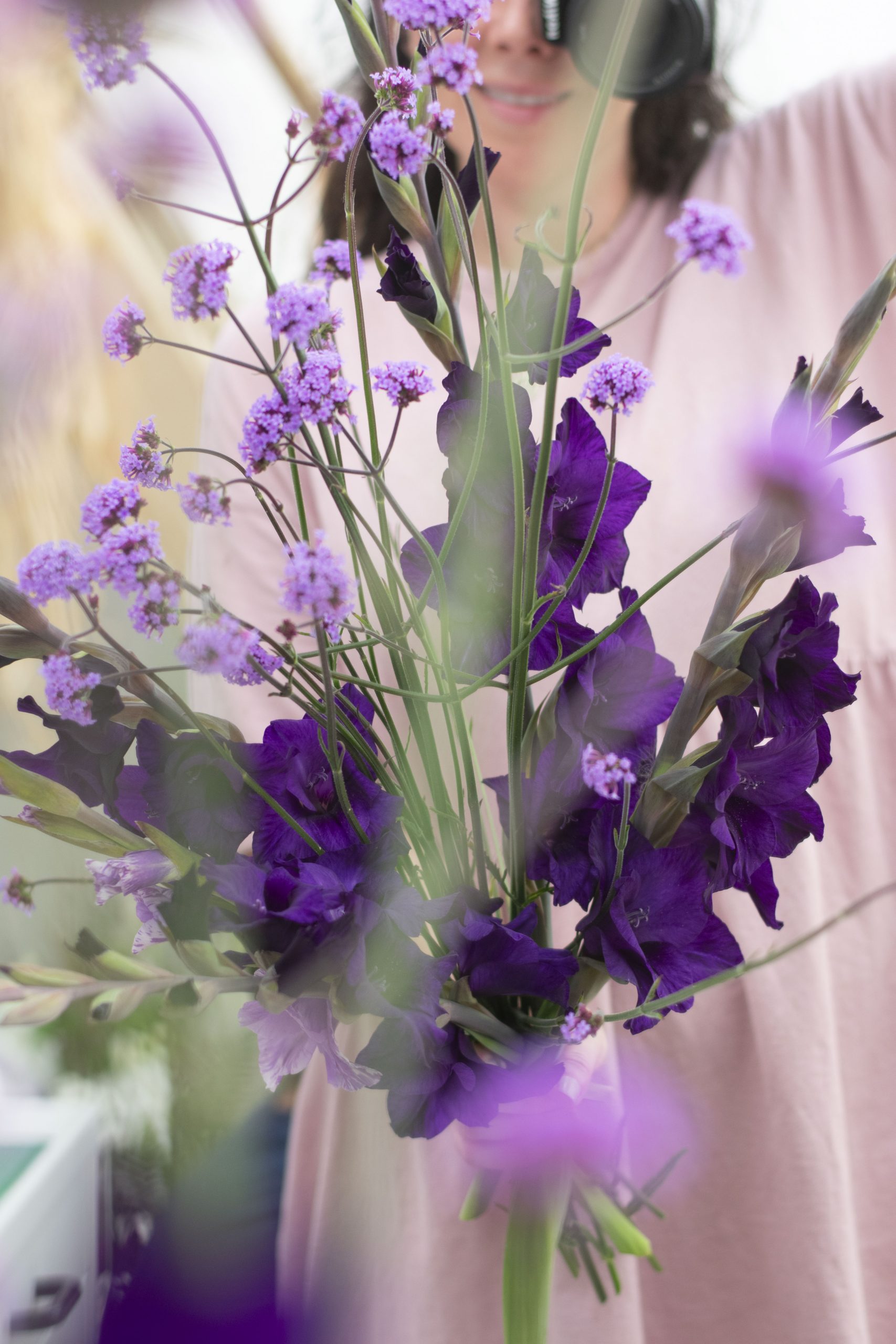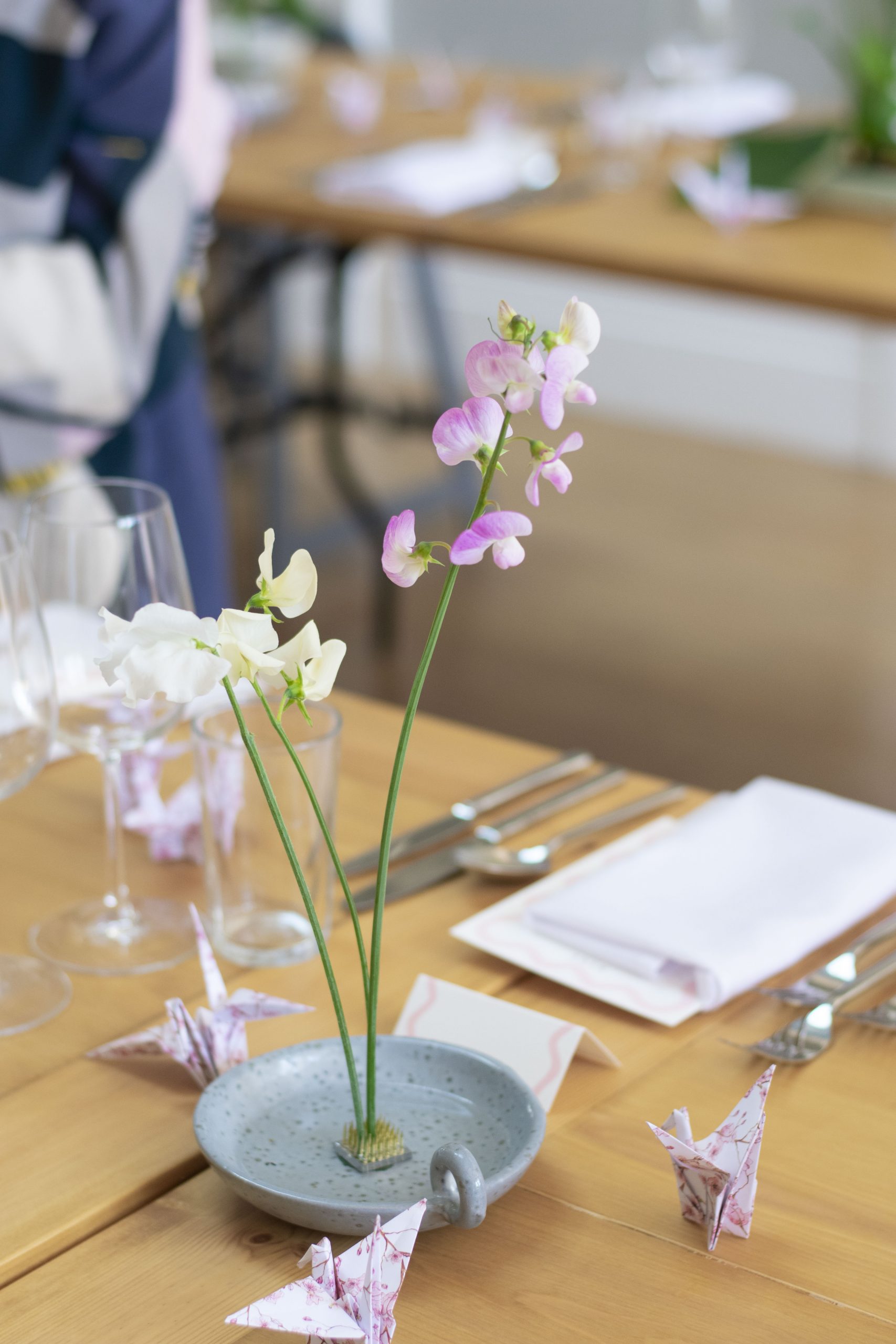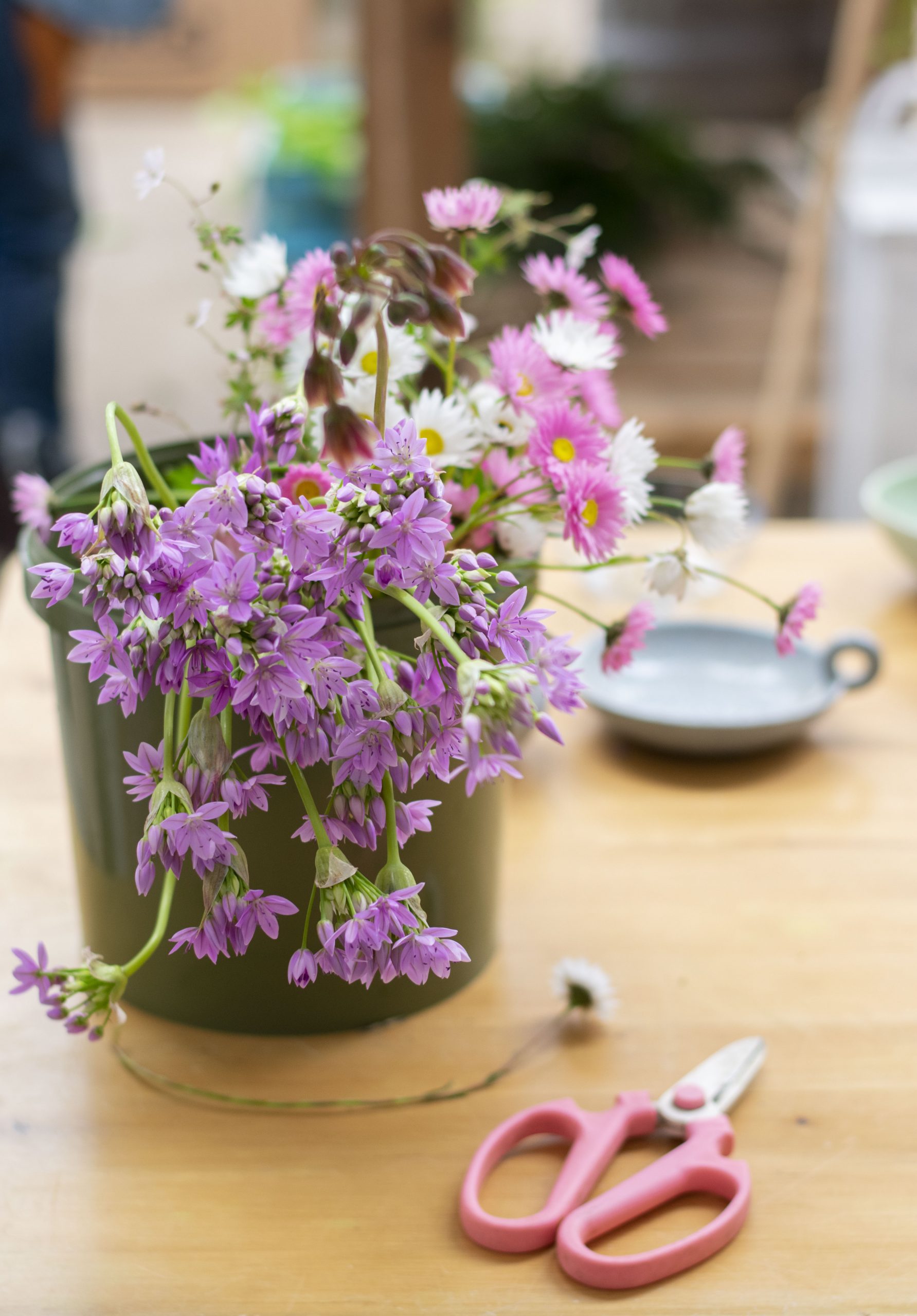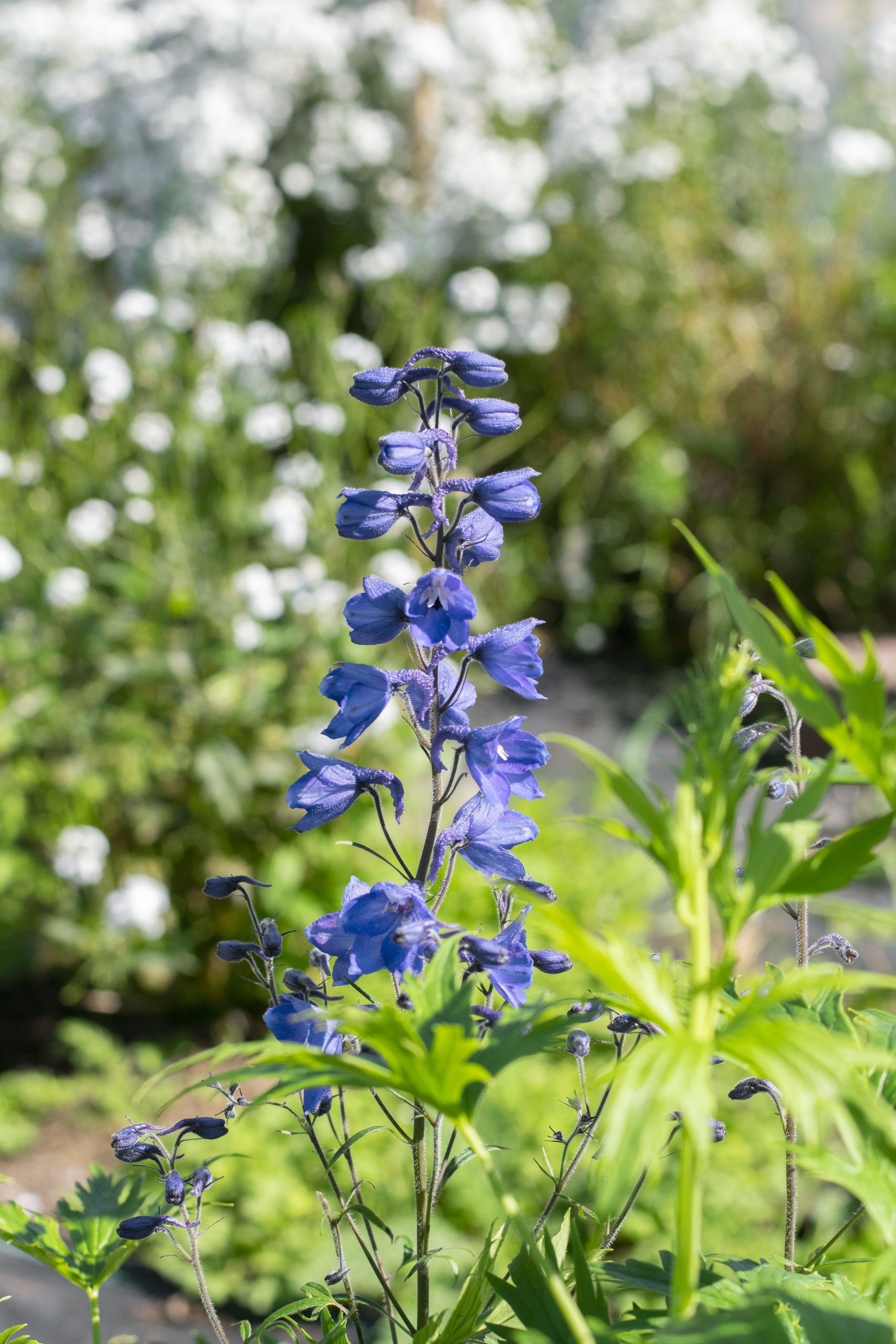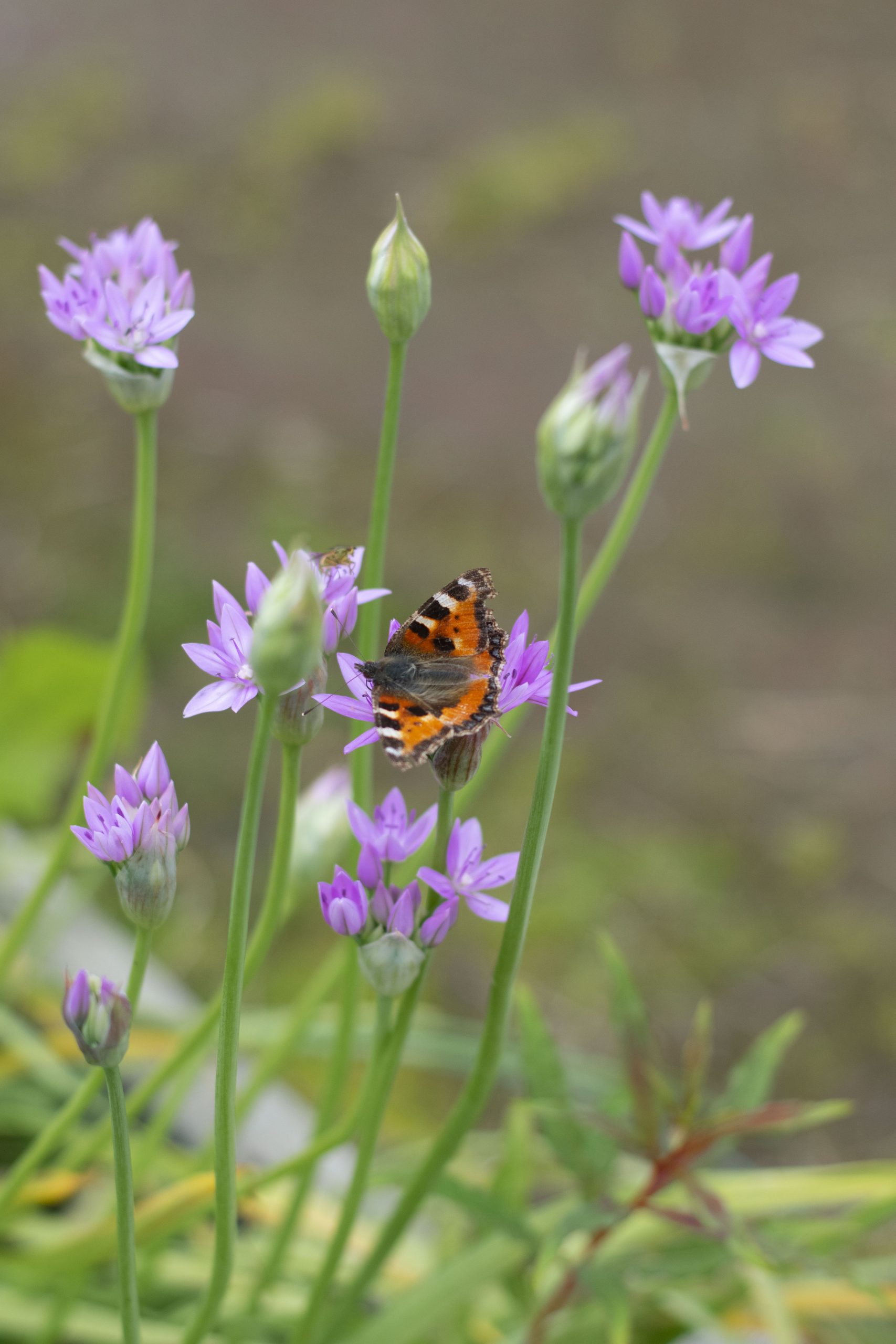Lauren Printy Currie, Days of Dahlia, UK.
Lauren Printy Currie is a second-generation florist with a background in fine art. After doing her own wedding flowers in 2018, Lauren and her mother Louisina went full time with Days of Dahlia, a farm and events business in Glasgow, Scotland.

Please tell us a little about your work history.
My mum Louisina is a florist and has four decades of experience in the industry. I was very much born into it, but took a different path – I studied sculpture at art school and worked for 10 years in the arts sector.
My mum and I created the flowers for my wedding in 2018 and, having loved the whole process, decided to set up a business together. It was our aim to have a different approach to event floristry – to put the sustainability of people, planet and place at its heart, make use of the land on my family’s small holding, take inspiration from our garden and surrounding countryside, and grow all our own flowers.
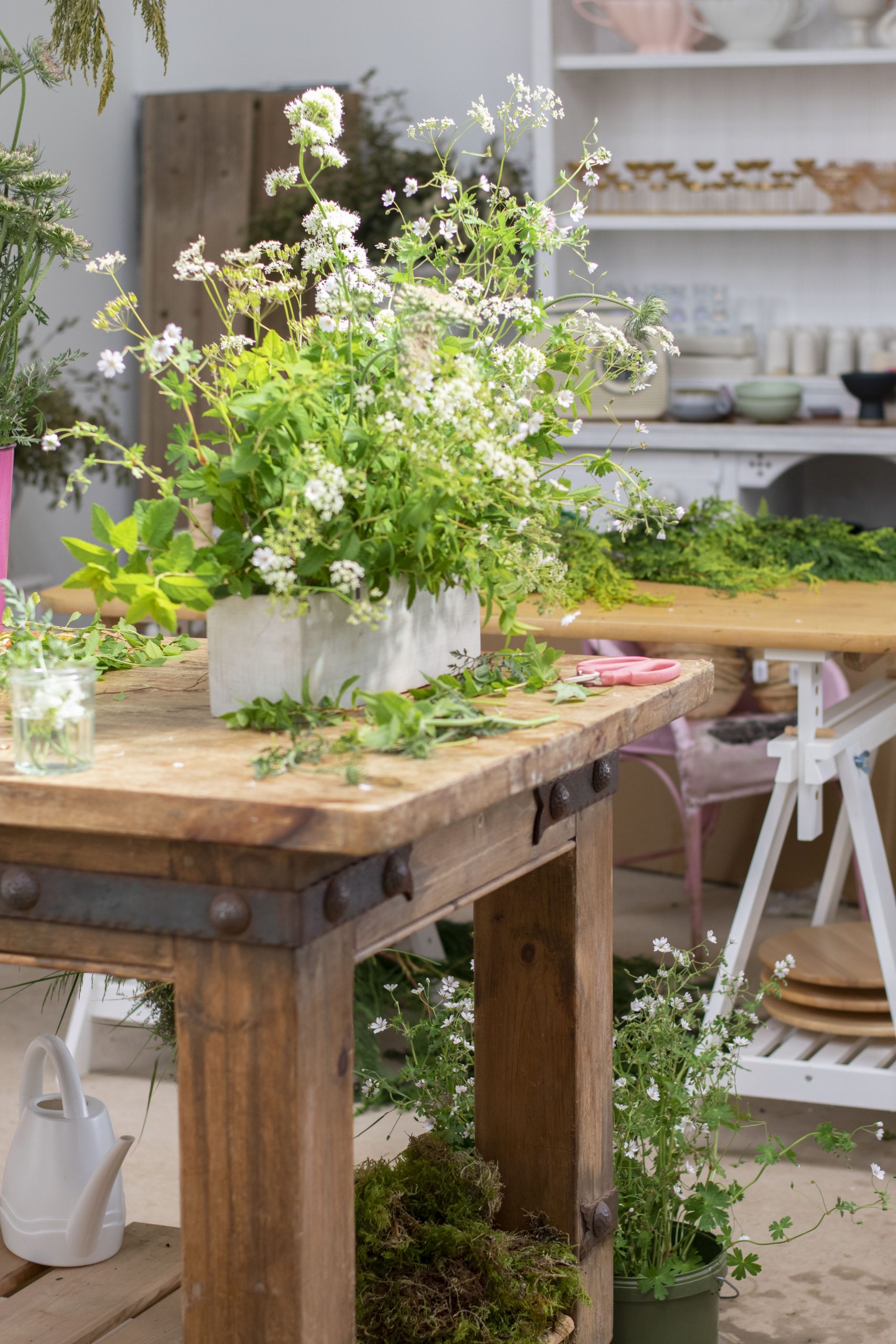
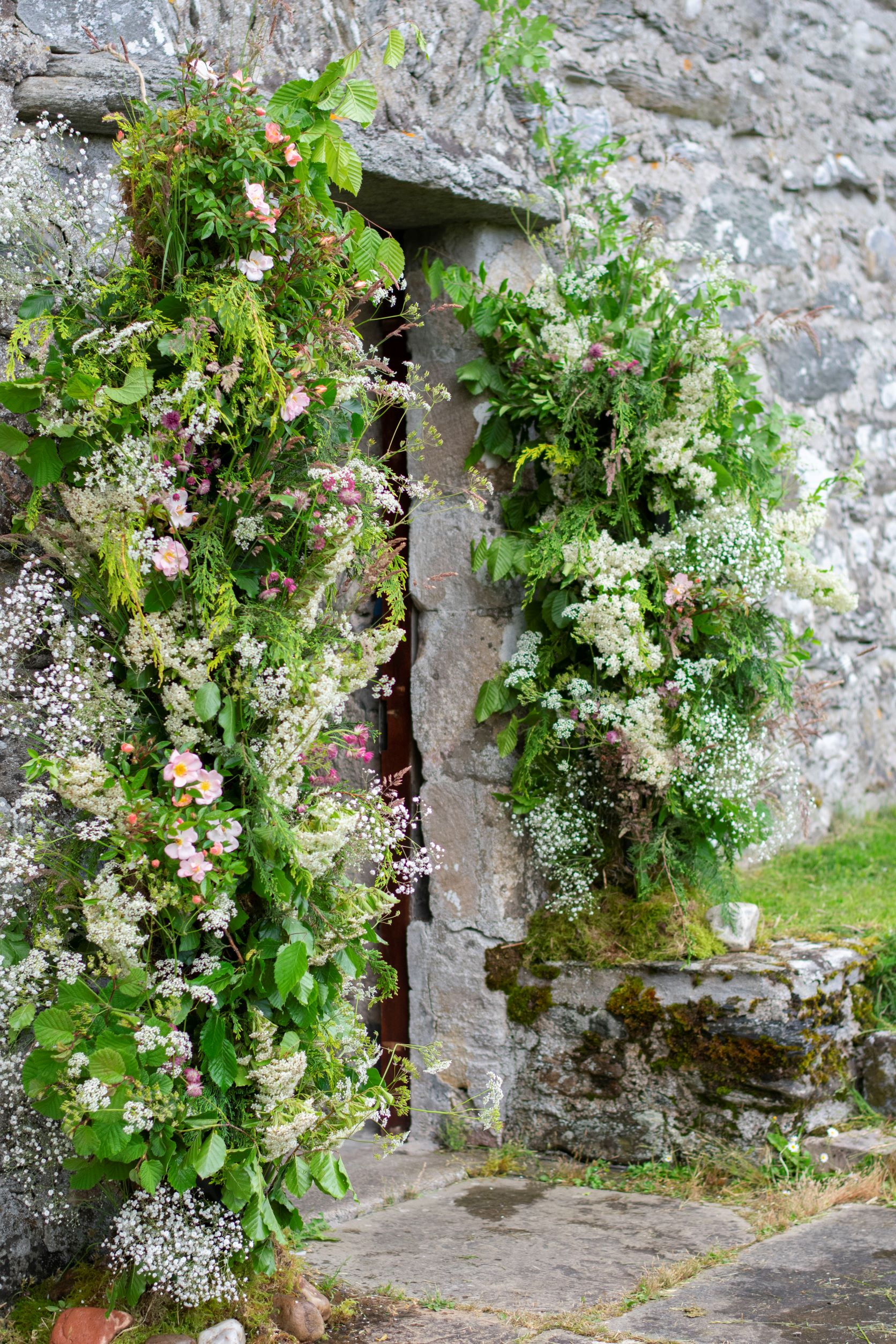
COVID has had a huge impact on florists all over the world. What kind of impact has this had on your own circumstances and work situation? What are you currently doing?
Without sounding too dramatic, the whole world came crashing down in March 2020. I had finally resigned from my full-time job to run the business with my mum. We had an exciting year ahead – a full diary of events and flowers growing happily and healthily. It felt like we lost everything overnight.
We had to dig deep to find opportunities. We transformed a stable block on our farm into a studio and flower school, created an online shop selling beautiful floristry tools, created bespoke ceramics to sell, and developed a botanical dye studio to make our own floristry ribbons and fabrics.
So while it was an awful time for so many and continues to be, I am grateful for the perspective, the experience, and the lessons. There are so many concerns when it comes to sustainability that seem to have been heightened by the pandemic; health as a society, welfare of the labour force, equality, mental health, all of the short term and long-term effects of all of humanity’s choices, and asking how we can do better.
What part of the job brings you the most satisfaction/joy/inspiration?
Growing our own flowers. There is nothing more satisfying than planting a seed, seeing it sprout, nurturing it through its hardships, and bringing it to flowering stage against all odds. I love being able to use plants at all stages in their life cycle – which is something you can never buy wholesale –the rusty hue of astilbe leaves in Autumn, echinacea when the petals have fallen off, strawberry and raspberry flowers, green rosehips blushing before they are ripe… It’s a whole new world of possibilities which is different season to season, year to year.
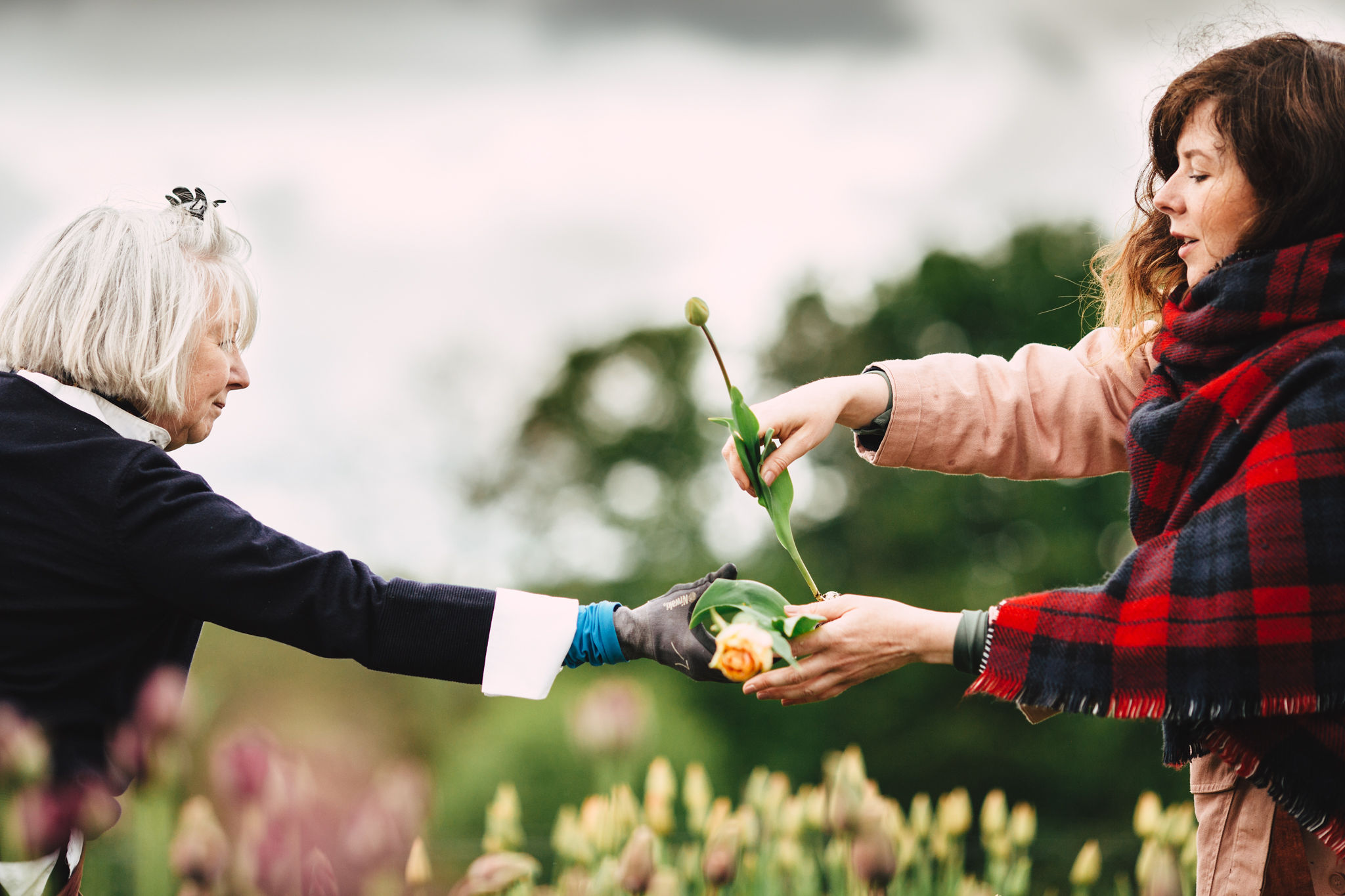
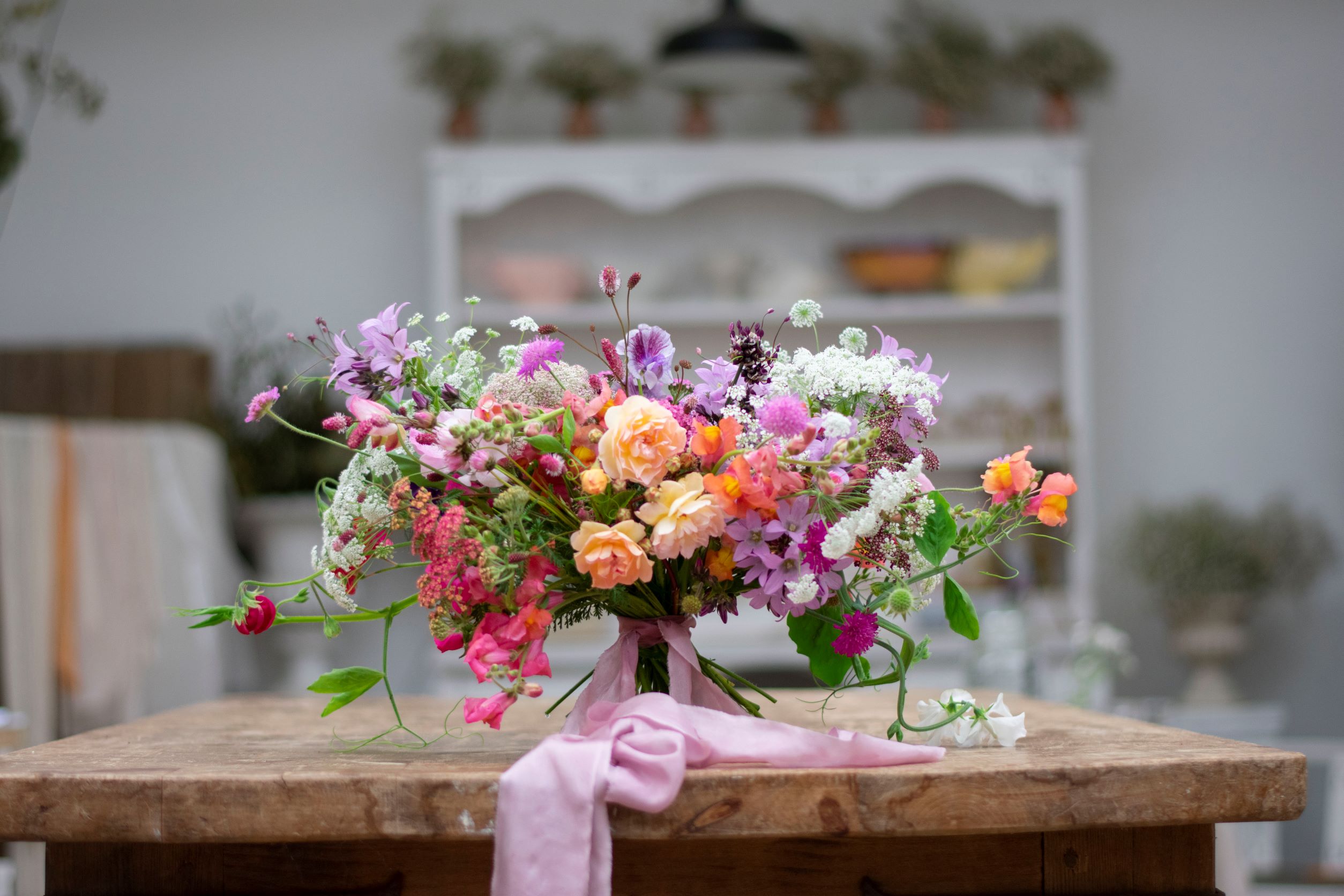
What do you struggle with?
There are a few struggles!
Time. What we do is very labour intensive, and I often think weddings exist in a sort of accelerated time warp. I enjoy a slower pace, so racing to far flung venues all over Scotland to transform venues is challenging.
Weather. Growing flowers and farming in general is probably one of the most challenging professions to navigate today. Unpredictability, climate change, diminishing resources, cost increases, mass manufacturing, lack of value, competition from import markets…
Value. As a creative person, you are vulnerable to having your passions exploited and asked to work for free or for very little because you do it ‘for the love of it’. After a while it can be demoralising. You need to work hard to measure your own creativity and worth which has to come from within.
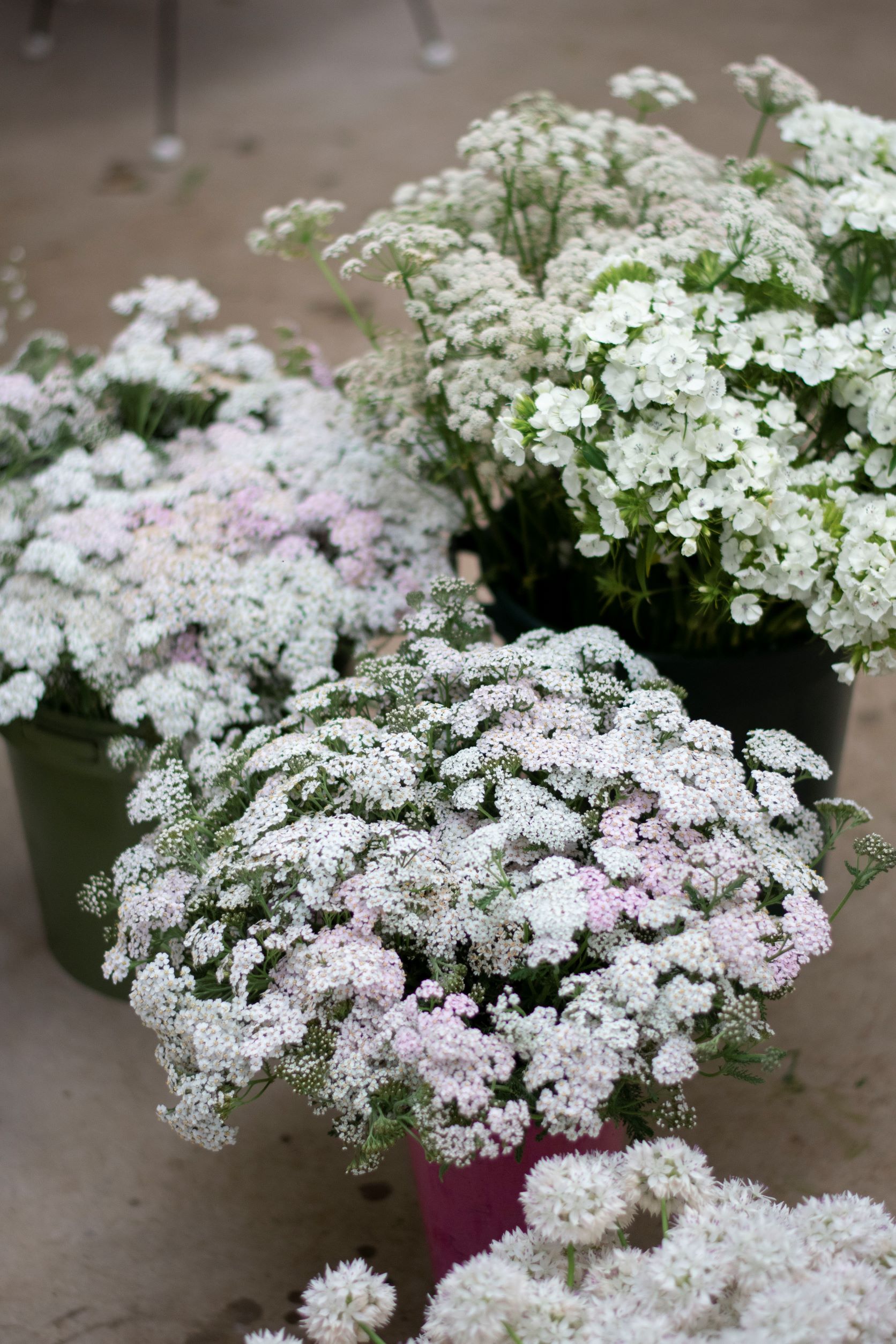
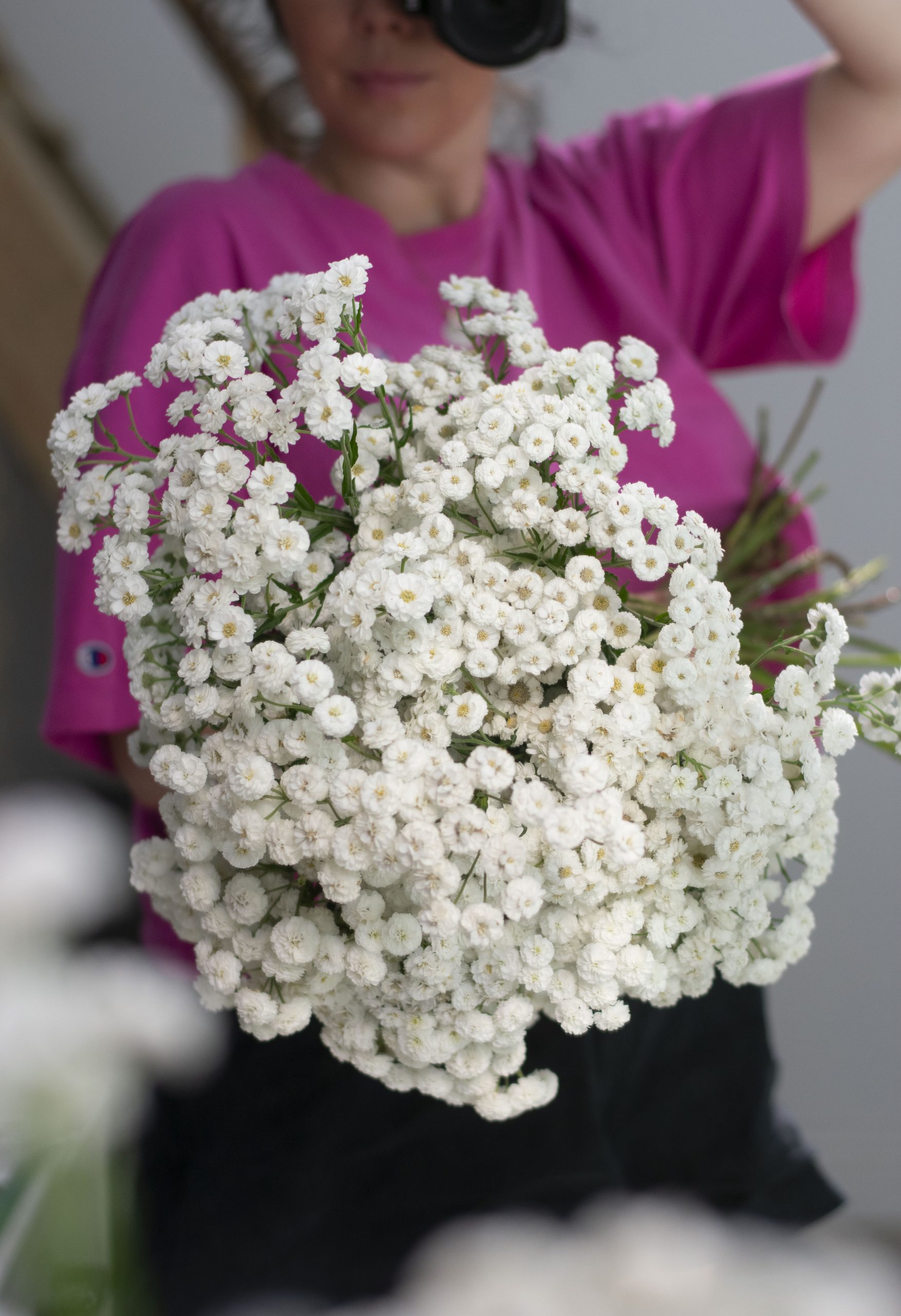
What are the biggest misconceptions about being a career florist?
That you live an idyllic life playing with flowers all day. Don’t get me wrong, we do spend a lot of time living this heavenly floral life! But there are also screens, admin, photography, photo editing, insurance, bookkeeping, website maintenance, social media, endless email threads, and and and… Being a career florist who works without any floral foam means a lot of research, experimentation, trials and tribulations with mechanics, and logistics.
What have been your biggest work highlights to date?
Providing flowers for many of the high profile UN events at COP26 in Glasgow. We were particularly proud at the whispers that David Attenborough may have been sitting at a table with Days of Dahlia flowers. Whatever has or hasn’t come out of COP26 (a conversation for another time), it was a very proud moment that we were able to use 100 percent Scottish and British grown flowers in November. It took our own farm and a whole community of local growers to bring it all together.

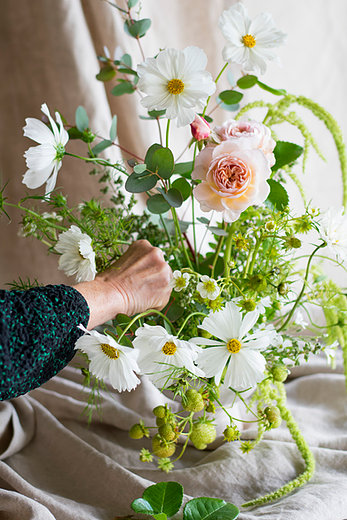
What are your greatest strengths?
My greatest strength is my mum and the other half of Days of Dahlia. She is unflappable under pressure, eternally optimistic, immensely knowledgeable, and a great artist. I like to think I am like her and have inherited some of her ways. Together we are a force!
Social media has had a huge impact on floristry. What do you think the main impacts have been and do you think these are positive or negative?
Everyone always talks about how the Instagram ‘algorithm’ is off and it certainly is for me! The explore page shows me posts of people crushing floral foam and glitter in the name of ASMR.
I think social media is vast and complex. It’s also very immediate. You have such a short window to grab someone’s attention and the doom and gloom of the environmental crisis isn’t always an easy sell. But the great thing is that flowers are so photogenic that we are never short of content.
People will always respond to authenticity and integrity online – sometimes we need a reminder to be ourselves.
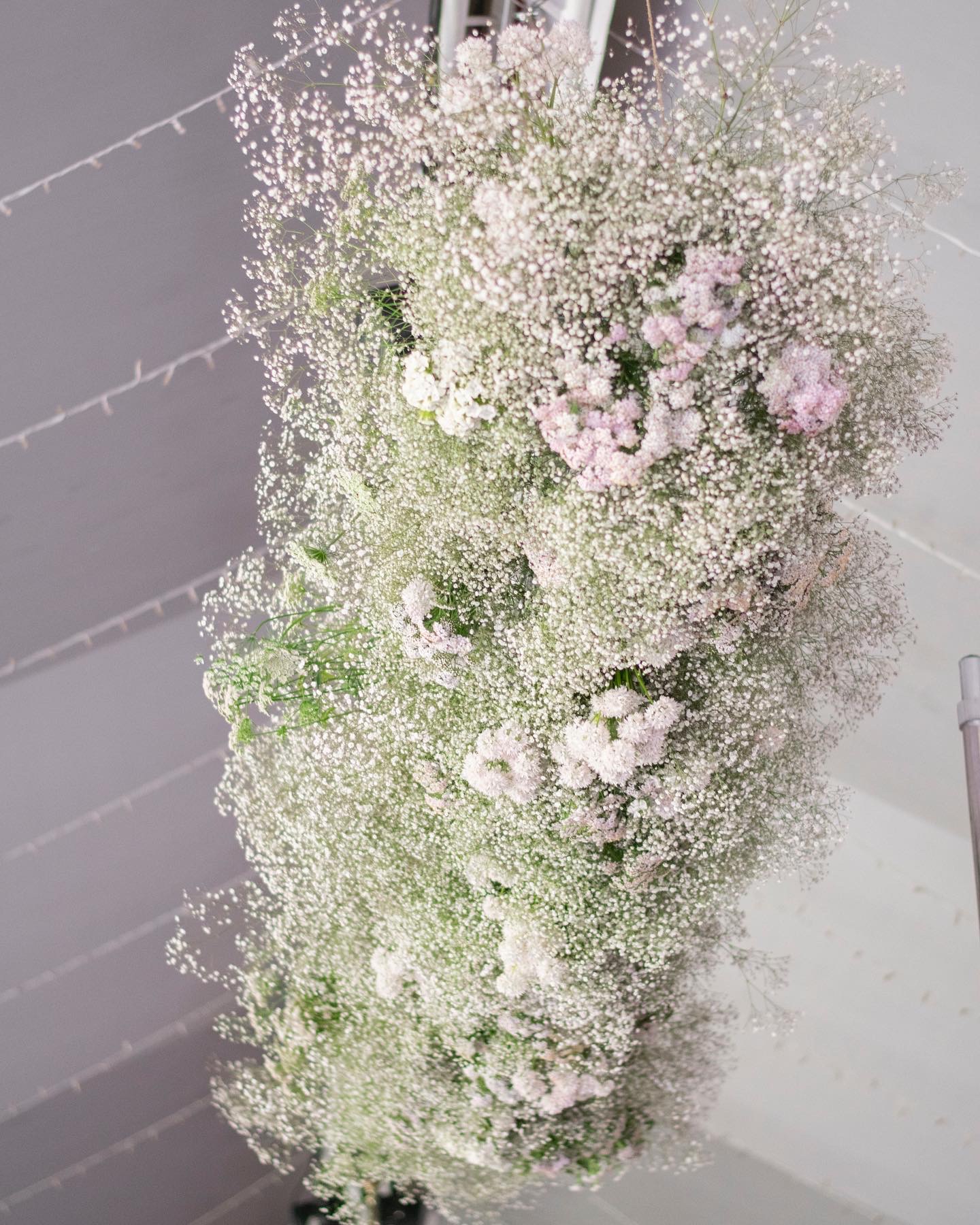
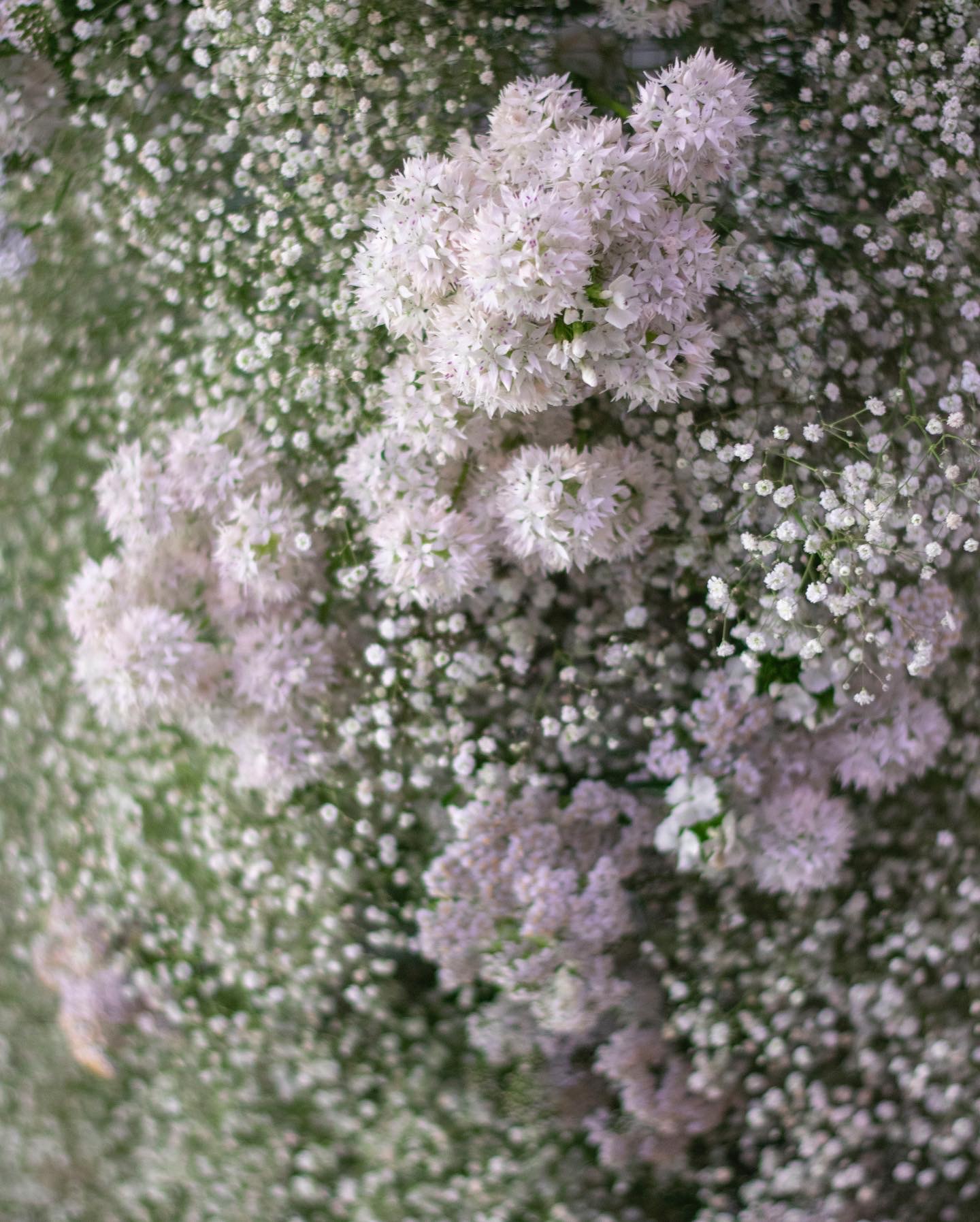
What concerns you most about the direction floristry/the industry is heading in?
I am worried about a lack of ownership or responsibility. We witnessed a pile of imported flowers which had been dumped out in the reception space the day after a wedding. The florist believed it was the client’s responsibility, the client believed it was the florist’s responsibility, the venue was in the middle and the staff felt they had no power. It was a shocking sight, made even more painful because it happened weekly. Not one person involved in these wasteful practices agrees with it, but the alternative doesn’t feel achievable for some reason. We have become so hooked on convenience. I worry that any further delay in action will miss a rapidly closing window to secure a liveable future in which to enjoy flowers and to enjoy each other and live our future lives. It is a bleak outlook but very real and I think the floral industry needs to understand the impact it is having, understand that it needs to change, and it needs to change really quickly.
As an employer, what do you look for in employees when hiring? What do you respect in other florists?
People who ‘get it’. Anyone who would get down on their hands and knees in our polytunnel with her nose in a rose is perfect. We are lucky enough to know and work with a few of these rare angels!
I respect other florists who have that magical quality that can’t easily be described, that ‘je ne sais quoi’, who have their own unique touch and their work is effortlessly beautiful. I think you can always tell when someone is inspired by and tuned into their ingredients without distraction, they don’t follow trends, and their work is characteristically their own. I have profound respect for ikebana practitioners. I think within this discipline there is such commitment and fine tuning to self, to nature, to practice, to beauty, to pathos, to life.
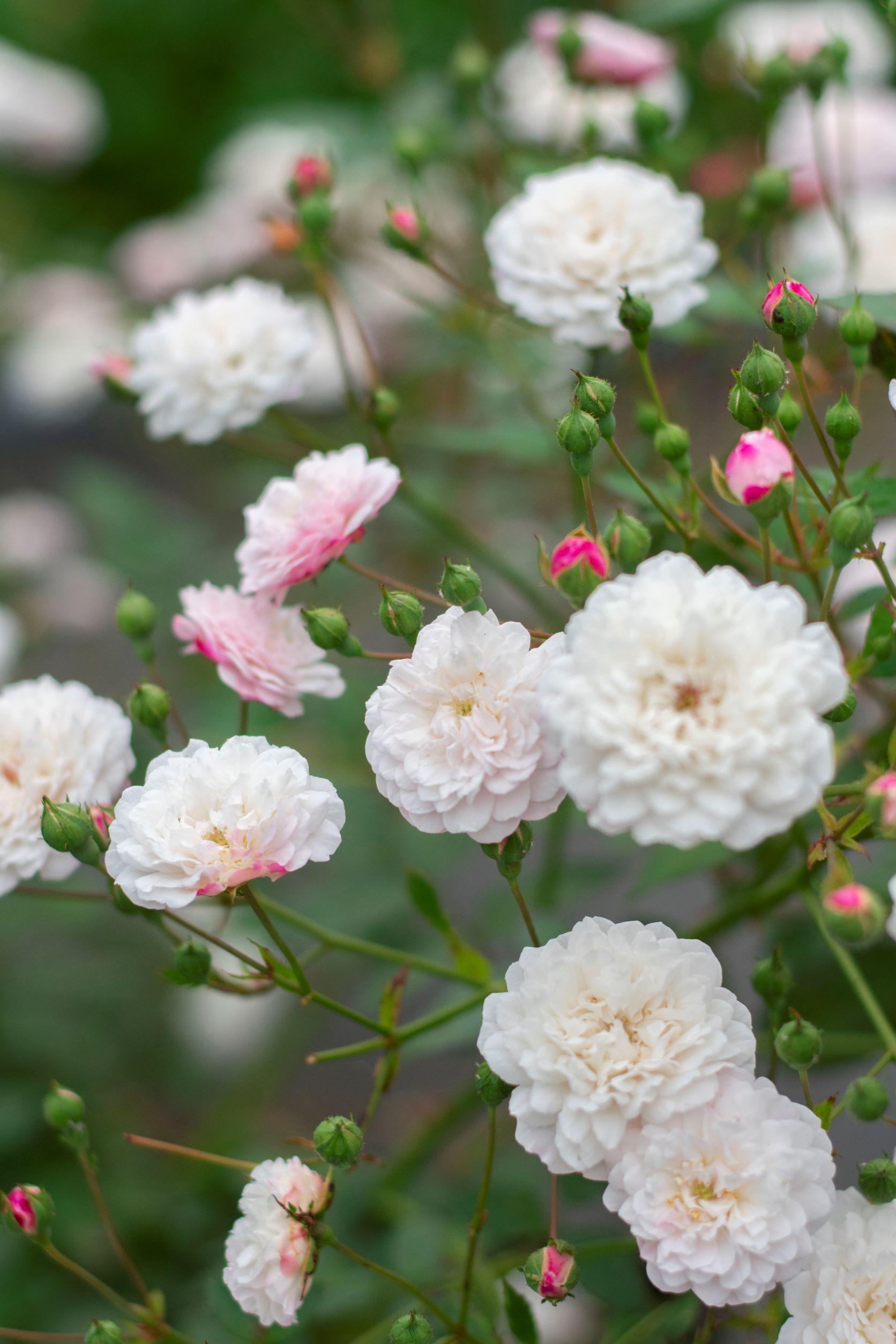
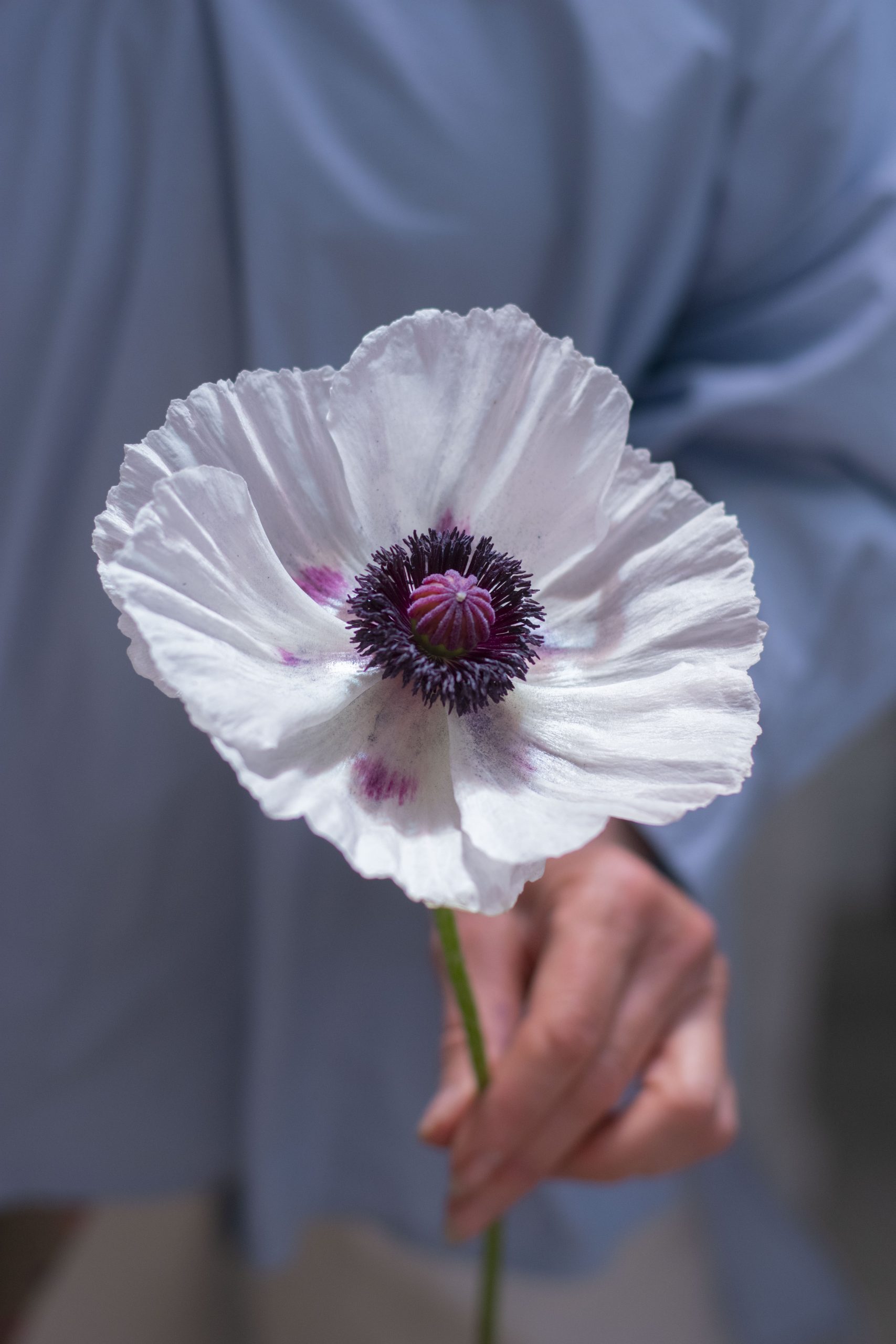
The word ‘sustainability’ in floristry is getting a good run – what does this mean to you in relation to your business practice?
Sustainability is a reminder to never be complacent. Even growing your own flowers is not enough – how much water are you using, is your soil peat free, where are you sourcing your bulbs and seeds from, how much single use plastic are you using…? When you really scrutinise every decision you make, you realise just how unsustainable our world really is. But it’s no reason to not do your utmost to try, even if it means small acts and constant review.
Sustainability for us is also about respect – a respect for flowers, the environment, the seasons, and people. Along with the obvious things we associate with a sustainable practice – not using foam, using locally grown flowers, reducing excess packaging, managing your waste, plastic use etc – we must also think about how we treat ourselves and our workers, how we impact our wider community, the learning and development opportunities we provide etc.
To be sustainable also means to be profitable and self-sufficient, but in such a way that profit is never prioritised over people’s wellbeing or the environment. It’s a value system that must come from within.
What’s in your toolbox?
Flower frogs in every shape and size
Raffia from nutscene
The best pair of scissors you can afford (I love the niwaki sakagen in pink and the niwaki sentei)
Days of Dahlia waxed cotton apron
Dark chocolate
